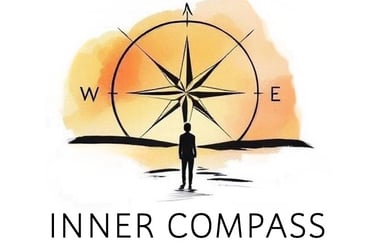Frequently asked questions
What is the difference between counselling and psychotherapy?
Counselling and psychotherapy are closely related and often overlap. In general, counselling tends to focus on specific issues or life challenges — such as stress, grief, or relationship difficulties — and is usually shorter-term.
Psychotherapy often explores deeper patterns, emotional struggles, or long-standing issues, and may be longer-term in nature. It can help you gain insight into how past experiences shape your present and support lasting personal growth.
Ultimately, both aim to support your wellbeing, and the approach we take will be tailored to your needs. You don’t need to know which one is “right” — we’ll figure that out together.
How long will therapy take?
Each session typically lasts between 45 to 60 minutes. For the most meaningful progress, I recommend maintaining a regular weekly schedule. As we work together, we’ll periodically re-evaluate your needs, and the frequency may adjust based on the intensity of your challenges or the depth of the work you’re doing.
Some clients seek therapy for a few sessions to address specific life challenges. Others choose a deeper, longer-term journey of personal growth, which can span months or even years. Many clients return periodically, either to address new challenges or to continue their growth. The journey is yours to shape, and the flexibility is there to fit your life.
How do i know if therapy if right for me?
If you’ve been feeling overwhelmed, stuck, or simply not quite yourself — therapy might be the support you need. You don’t have to be in crisis to benefit. Many people come to therapy seeking clarity, better coping tools, or a space to reflect and grow.
If you’re curious about your patterns, want to feel more connected to yourself, or are navigating a life transition, therapy can be a powerful step. If you’re wondering whether it’s right for you — that wondering alone is often a sign that it’s worth exploring.
Are the sessions confidential?
Your privacy is my priority. Everything you share in our sessions is treated with the utmost confidentiality, in line with professional ethical standards. The only exceptions are rare — when there is a legal duty to act, such as concerns about serious harm to yourself or others. Your trust matters, and I’m here to honour it.
What can i expect from my first session?
Our first session is a chance to pause, reflect, and begin to make sense of what’s brought you here. We’ll explore the challenges you’re facing, what you hope to gain from therapy, and start building a picture of your world — including your background, relationships, and inner strengths. This time is also for you to get a feel for how I work, ask questions, and see whether the space we create together feels safe and supportive. The connection between client and therapist is at the heart of the healing process — and it begins with this first step.
Whats the difference between Online and In-Person sessions?
Both online and in-person sessions offer a safe, supportive space for therapy — the core of the work remains the same. In-person sessions can feel grounding and provide a sense of physical presence and ritual. Online therapy, on the other hand, offers more flexibility and convenience, especially if you're managing a busy schedule or prefer the comfort of your own space.
Some clients appreciate the accessibility of online sessions, while others value the energy of being in the same room. What matters most is what feels right for you — and I’m happy to offer both options, depending on your preferences and needs.
How do i get started?
Beginning therapy doesn’t have to be overwhelming. Simply reach out to schedule a free discovery call — a warm, no-pressure space to talk about your needs, your goals, and how I can support you. From there, we’ll shape a path forward that feels right for you, at a pace that suits your life.


For Immediate Support
If you or someone you know is at risk and needs immediate help, please contact the following agencies (all operating 24 hours daily) instead.
For suicidal thoughts or self-hurt and mental health crises:
Samaritans of Singapore (SOS) at 1-767
Text Samaritans of Singapore (SOS) CareText 9151 1767 via WhatsApp
Institute of Mental Health (IMH) at 6389 2222
For concerns of violence committed against you or someone, or child/adult protection issues:
National Anti-Violence and Sexual Harassment Helpline (NAVH) at 1800-777-0000
© 2025. All rights reserved.




